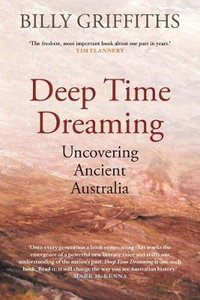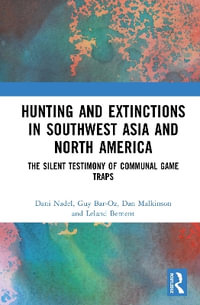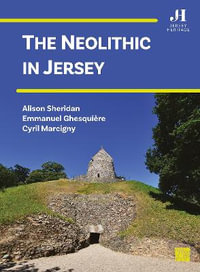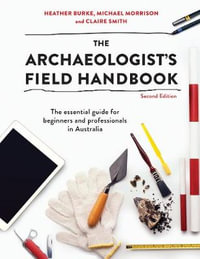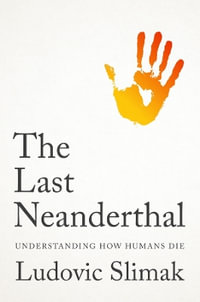Our perception of the Neanderthals has undergone a metamorphosis since their discovery 150 years ago, from the losers of the human family tree to A-list hominins. Spanning scientific curiosity and popular cultural fascination means that there is a wealth of coverage in the media and beyond – but do we get the whole story? Despite enormous advances in the scientific study of this fascinating human ancestor, barely anything beyond their ice-age extinction escapes the scientific journals to make it into the mainstream media. The reality of 21st century Neanderthals is complex and fascinating, yet remains virtually unknown and inaccessible outside the scientific literature.
In Beyond the Ice, Neanderthal expert Becky Wragg Sykes shoves aside the cliché of the shivering ragged figure in an icy wasteland, and reveals the Neanderthal you don't know, who lived across vast and diverse tracts of Eurasia and survived through hundreds of thousands of years of massive climate change. Using a thematic rather than chronological approach, this book will shed new light on where they lived, what they ate, and the increasingly complex Neanderthal culture that is being discovered. The reader will journey through the surprisingly exotic and immensely varied worlds of the Neanderthals, from coasts to mountains to deserts as well as the great European forests we might recognise today, while the endless wind-swept tundras of the ice ages are explored with a fresh eye.
Based on the author's first-hand experience at the cutting-edge of Palaeolithic research and theory, this easy-to-read but information-rich book lays out the full picture we now have of the Neanderthals for the first time, from amazing new discoveries changing our view of them forever, to the more enduring mysteries of how they lived and died, and the biggest question perhaps of them all, their relationship with modern humans.
About the Author
Rebecca Wragg Sykes has been fascinated by the vanished worlds of the Pleistocene ice ages since childhood, and followed this interest through a career researching the most enigmatic characters of all, the Neanderthals. After a PhD on the last Neanderthals living in Britain, she was a Marie Curie Fellow at the PACEA laboratory, Universite de Bordeaux, France, working on Neanderthal landscapes and territories in the Massif Central, south-east France, as well as studying their cognition through the objects they made. Alongside her academic expertise, she has also earned a reputation for exceptional public engagement communication as a speaker, in print and broadcast.
Her writing has featured in the Guardian, Aeon and Scientific American, and she has appeared on history and science programmes for BBC Radio 4. She works as an archaeological and creative consultant, and co-founded the influential TrowelBlazers project, highlighting women in archaeology and the earth sciences.
Industry Reviews
"Beautiful, evocative, authoritative. Kindred is a beautifully written exploration of our fast-developing understanding of Neanderthals and their culture and a compelling insight into how modern science is revealing the secrets of an extinct species who, for 350 thousand years before Homo Sapiens became dominant, inhabited a world "as wide and rich as the Roman Empire."
Professor Brian Cox, Physicist and TV presenter
"Blending cutting-edge science with lyrical storytelling, Rebecca Wragg Sykes paints a detailed portrait of our enigmatic relatives."
Professor Alice Roberts, anatomist, author and broadcaster
"Written with such pleasing, elegant prose, Kindred is a captivating ode to the subtle complexities of palaeoanthropology - the thrill of discovery, the frustrating gaps in the evidence, the tantalising question marks hovering above our favourite ideas. Dr Rebecca Wragg Sykes balances admirable scientific caution with her joyous enthusiasm, and the result is a generous, enthralling history of how we first came to know our ancient cousins, and how we're still getting to know them today."
Greg Jenner, historian and author
"Kindred is a tour de force. A rich and beautiful synthesis of all that is known about Neanderthal biology and culture, it should be required reading for anyone interested in the history of humanity."
Dr Tori Herridge, palaeontologist and TV presenter




